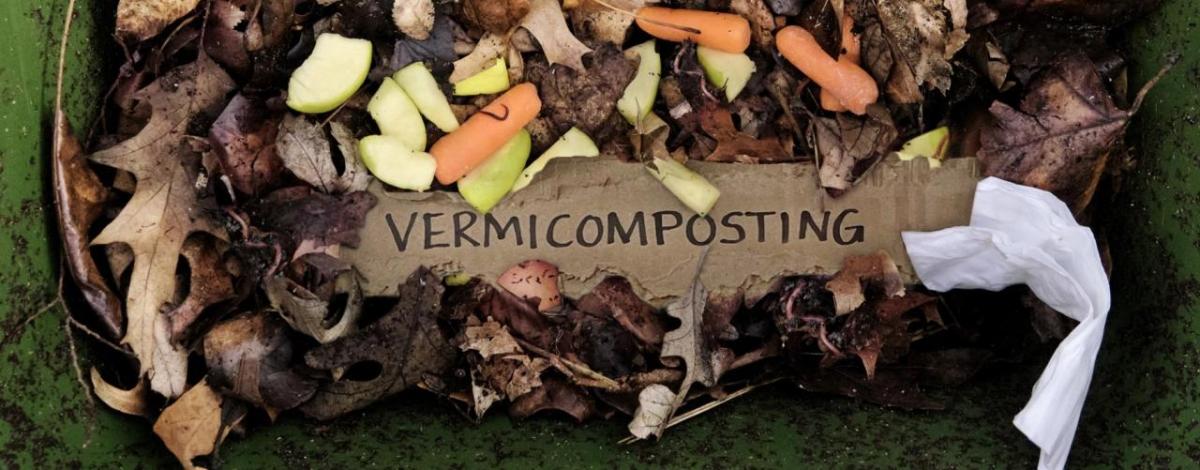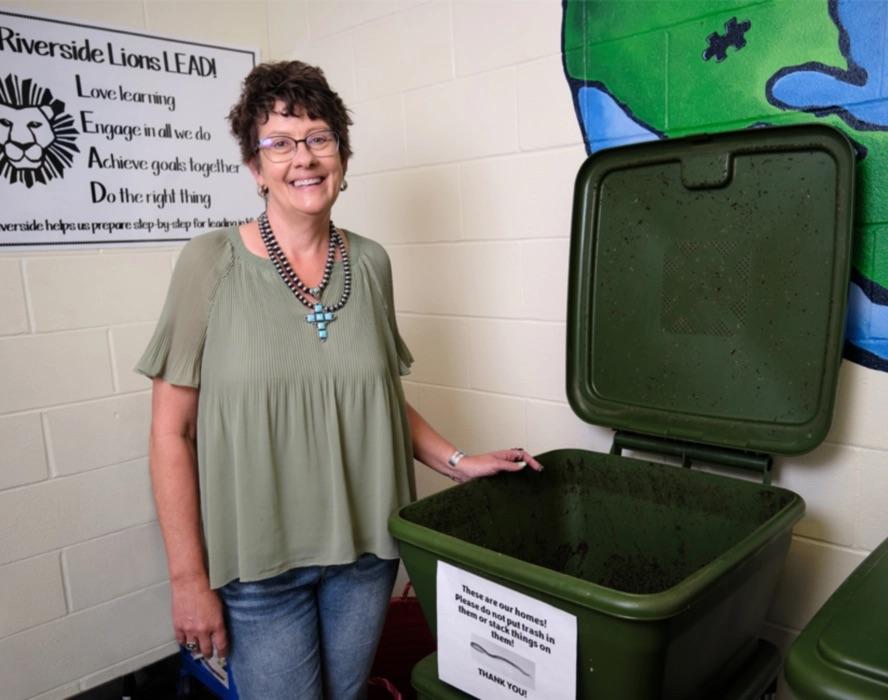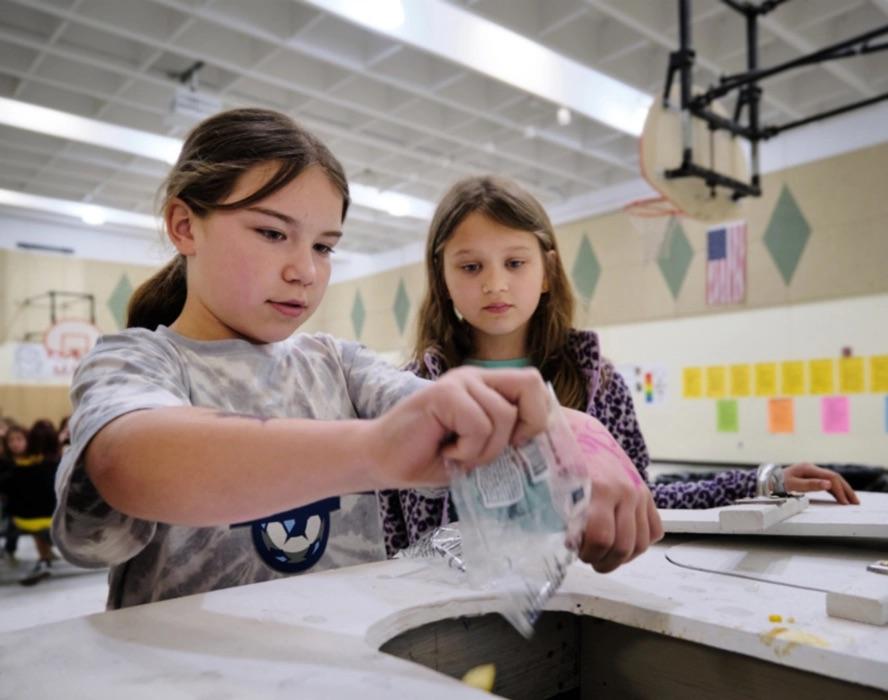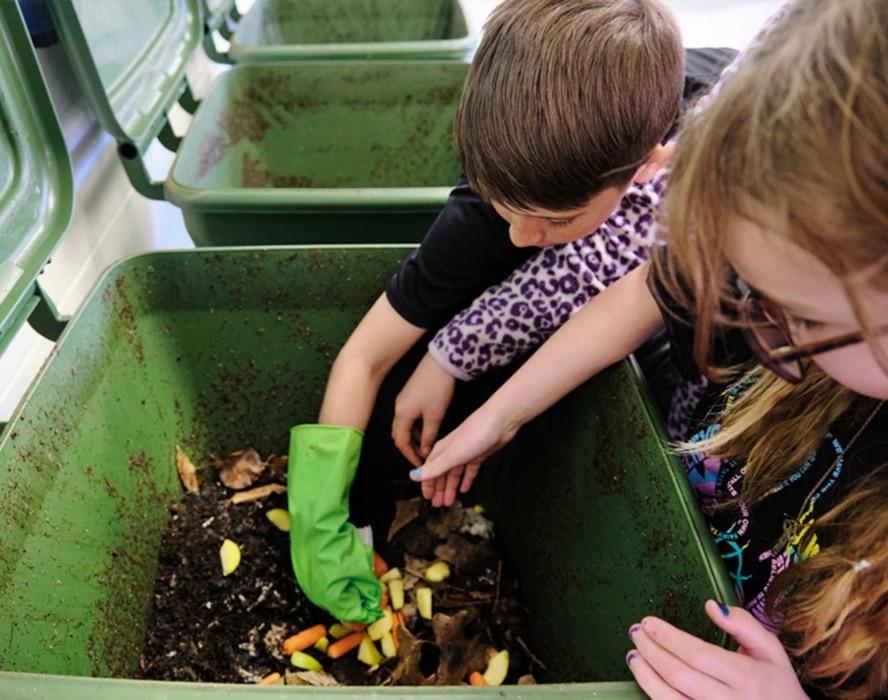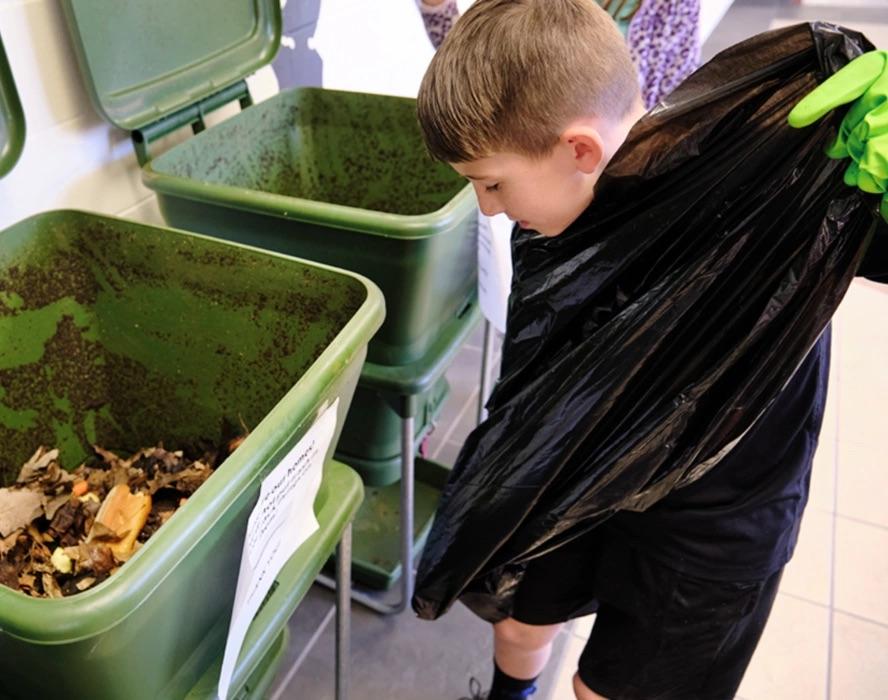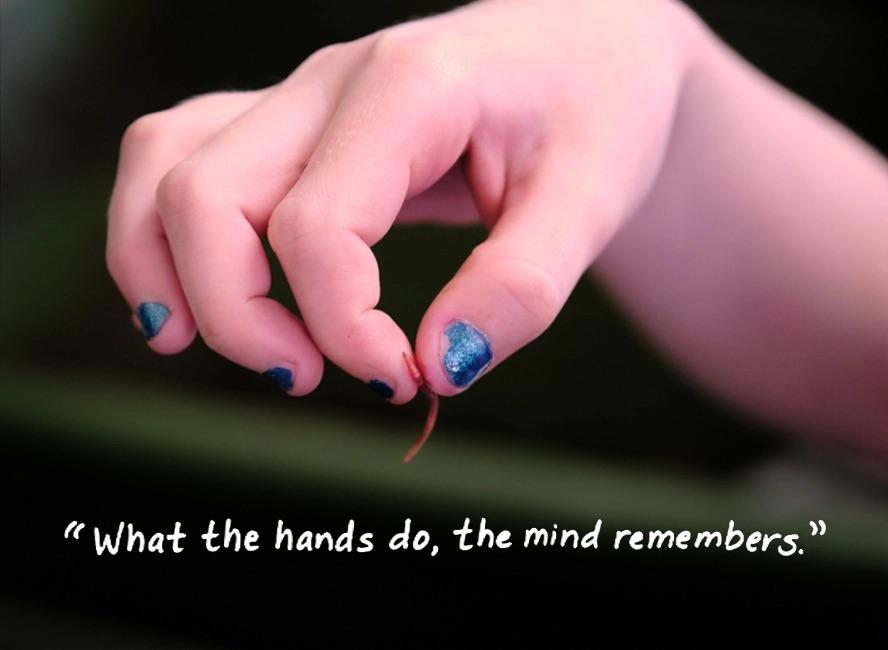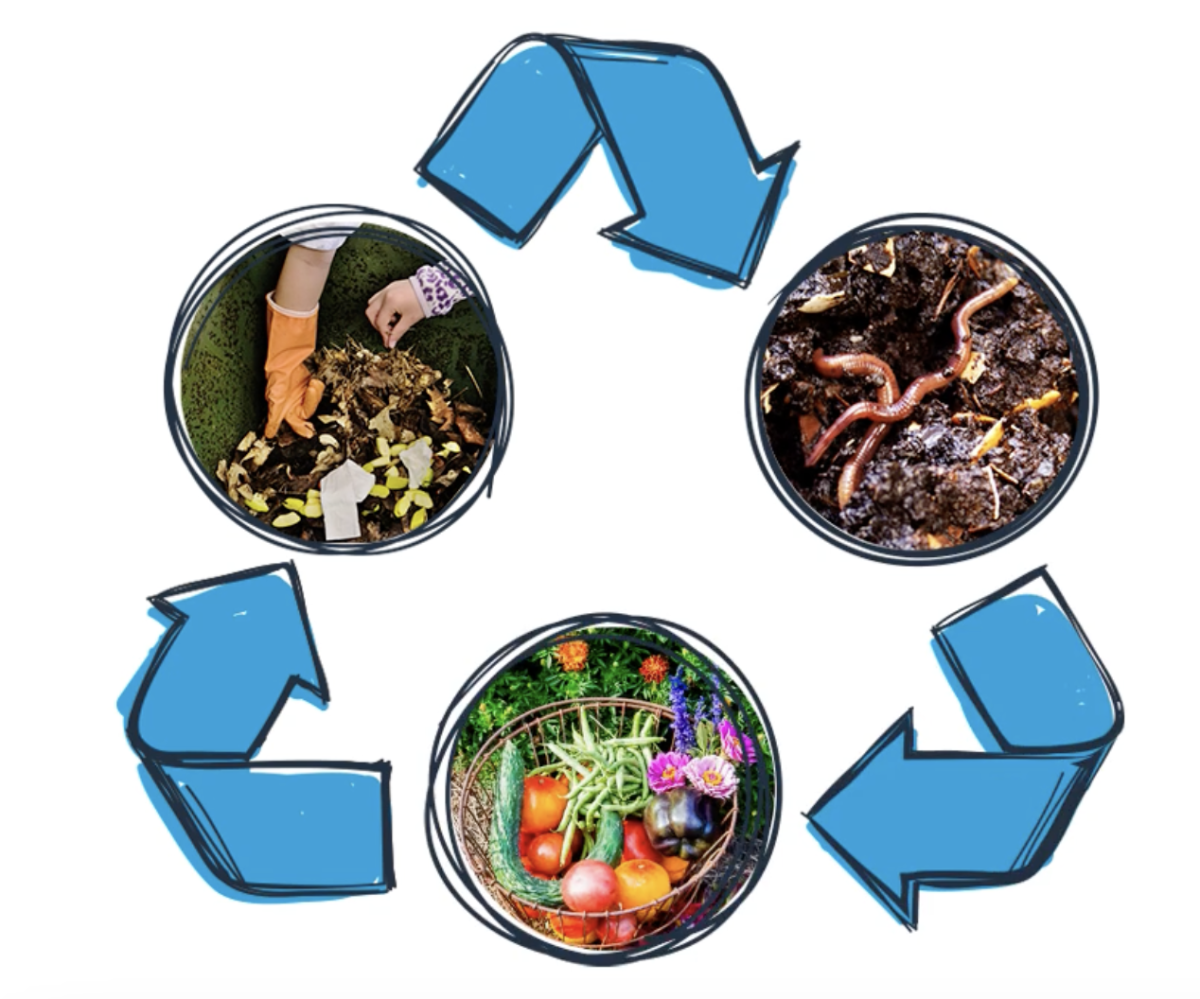Worm Food: Lunch Scraps Nourishing STEM Education at Wichita School
With the help of a Koch Classroom Grant, a Wichita elementary school teacher is successfully helping her students learn about recycling and entrepreneurship.
There’s nothing quite like the sticking power of hands-on education – even when “hands-on” means sifting through fistfuls of red worms and composting material.
For some people, that’s enough to make the skin crawl. But at Wichita’s Riverside Leadership Magnet Elementary, it’s getting students excited about science through an experiment made possible by fourth-grade teacher Darla Brown and an educational grant from Koch.
Hands-on STEM education hits close to home for Darla – it’s what led her to a career in education, inspired by some of the teachers who made a difference in her sons’ lives as they experienced their struggles adjusting to traditional classroom instruction.
“I had a son who was not very big on school at all, and it was a real struggle to get him through school,” she says. “And a big part of that was because he was a little boy who didn’t want to come in and sit down at a desk.”
In her eight years of teaching, Darla has witnessed the power of hands-on, experiential learning and says, quoting acclaimed educator Maria Montessori, “What the hands do, the mind remembers.” In Darla's own experience, she has seen students – especially the younger ones – retain information better when scientific principles are made tangible beyond just lessons and photos in a textbook.
So, when Darla wanted to introduce the concept of vermiculture composting to her students, she did her own digging and applied for a Koch Classroom Grant, a program created in partnership with Wichita Public Schools to fund STEM and entrepreneurial projects in the Wichita school district. Now, her project is actively teaching the school’s students principles in both science and entrepreneurship.
With her classroom’s $3,000 grant, Darla was able to seed the project by purchasing three composting bins, starter materials and 6,000 “red wigglers” – worms that are ideal for composting due to their ability to consume half their body weight in food scraps every day. Because they’re also fast reproducers (able to reproduce once every 30 days), Darla estimates the school’s colony is already up to about 30,000 worms.
The worm composting program is not only teaching the kids about recycling and sustainability, they’re also able to experience these principles firsthand by emptying their lunch scraps into the composting bins. In the process, Darla says it’s raising awareness of students’ impact on the natural world around them while also encouraging them to take ownership.
“It was really a way to bring the science in but also show the kids the leadership side of things and that they can make a difference even at their age. So instead of throwing our trash away and it going to a landfill, it’s turned into a product we can use,” she says, adding, “That’s something that I’m hoping … if it inspires them to start their own tiny garden and do something small for the environment and their community, then it will have accomplished its goal.”
The composting project is a self-sustaining project that’s also teaching the students about topics like marketing and entrepreneurship. As the worms are composting, they’re creating “castings” – an organic form of manure fertilizer produced by the worms – that the students can collect and sell by the bag to local gardeners. Profits from the sale of these castings are then put back into the composting project.
“I’ve never seen so much excitement over worms,” Darla says. “The kids are involved at almost every level. They help build the worm bins for me. They put them together. They’re the ones who feed them. They’re the ones who gather up leaves. And when we get ready to bag castings, they’ll be the ones bagging them.”
And there’s a local market for these organic castings. In Wichita’s Riverside neighborhood, where the school is located, gardening is part of the community. Many yards have their own gardens, and the school itself is just a half mile from Botanica, a Wichita botanical garden. So the kids are making a positive impact serving their community, and the profits will help the project continue to grow.
“This is something that’s not just a project for this year,” Darla says. “We are continuing it for as long as we can, so it’s going to be something that other kids will get to experience for years. But we couldn’t have done it without Koch and the Classroom Grant program.”

